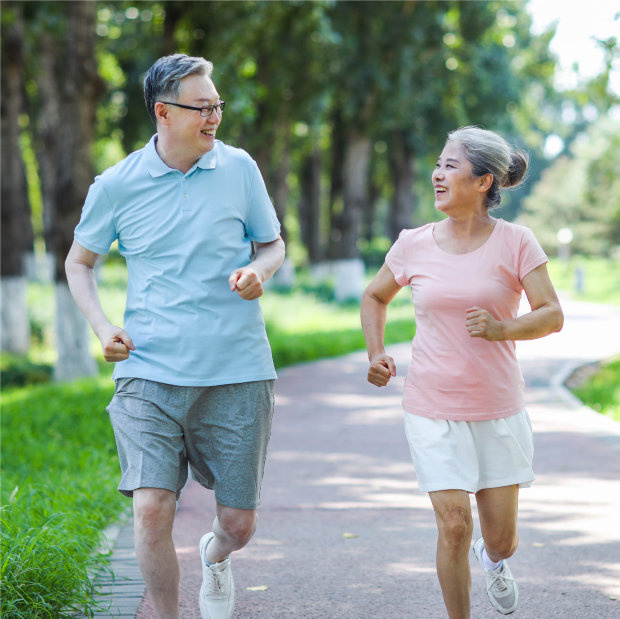
Exercise is the key to healthy ageing, but older adults must take precautions to avoid over-stressing their body.
Staying active into their later years helps seniors age better, remain healthier and independent longer. But like many things in life, it is possible to get too much of a good thing. When carried out incorrectly or in excess, exercise can cause injuries, prolonged pain, aches and discomfort. For older adults and, in particular, those with pre-existing medical conditions, Ms Irene Chu, Senior Physiotherapist, Physiotherapy Department, Singapore General Hospital, emphasised the importance of checking with their doctor or a healthcare professional before starting any new exercise routine.

“Exercise puts our bodies in some form of physical stress. If this stress is increased suddenly or beyond what the body can withstand, injuries and other issues can occur,” said Ms Chu (above). Older adults may be more susceptible to over-stressing their bodies as cardiovascular fitness, muscular strength and flexibility tend to decrease with age.
As a physiotherapist who works with patients to manage obesity and other chronic diseases, Ms Chu has observed more people taking up exercise to enhance their health and fitness while working from home during the COVID-19 pandemic.
At the same time, she also noticed some patients, especially those who were unaccustomed to exercising, experiencing pain and discomfort after exercising too much. “In general, exercise injuries tend to occur when the person does too much after doing too little for too long,” Ms Chu said. When a usually sedentary person goes on a two- to three-hour hike, he risks pains, strains and injuries, as do people who do not get sufficient rest after vigorous exercise.
Exercising regularly for reasonable periods each time, rather than cramming a couple of hours in one session, allows the body to reap the health benefits of each exercise session. “Our blood pressure and blood sugar levels improve with each bout of exercise, and these effects typically last one to three days,” said Ms Chu.
The Health Promotion Board and Sport Singapore’s Singapore Physical Activity Guidelines recommend adults over 65 to engage in daily moderate-intensity activity for at least 150 to 300 minutes each week. Moderate-intensity exercises include jogging, swimming and brisk-walking.
Read more: Staying active is a key to healthy ageing. Be sure to include these four others as well!
As part of their weekly physical activities, older adults should also incorporate at least three days a week exercises that improve or maintain muscle strength, balance and flexibility, such as tai chi and stretch band exercises.
More vigorous exercises, such as high intensity interval training, help people achieve higher levels of cardiorespiratory fitness and expend more calories. However, said Ms Chu, they may not be suitable for everyone, especially if the person has pre-existing medical conditions or has not been regularly exercising. Participating in very strenuous activities, especially over a prolonged time, is potentially dangerous as not just the muscles and joints can be overstressed, but also the heart.
Conversely, lower-intensity exercises are not necessarily always safe or beneficial for everyone. Even with an activity like yoga, muscles and joints can still face injury. “If I were to attempt a yoga pose that requires more flexibility than I have, I may end up with a muscle strain from overstretching the area. Overuse injury may also occur if a person repeats a particular movement too many times,” said Ms Chu. Having said that, a person’s physical capabilities can be built up. “With proper and regular conditioning, we can learn to manage and get used to a greater amount of physical stress,” she said.
Get the latest updates about Singapore Health in your mailbox! Click here to subscribe.













 Get it on Google Play
Get it on Google Play